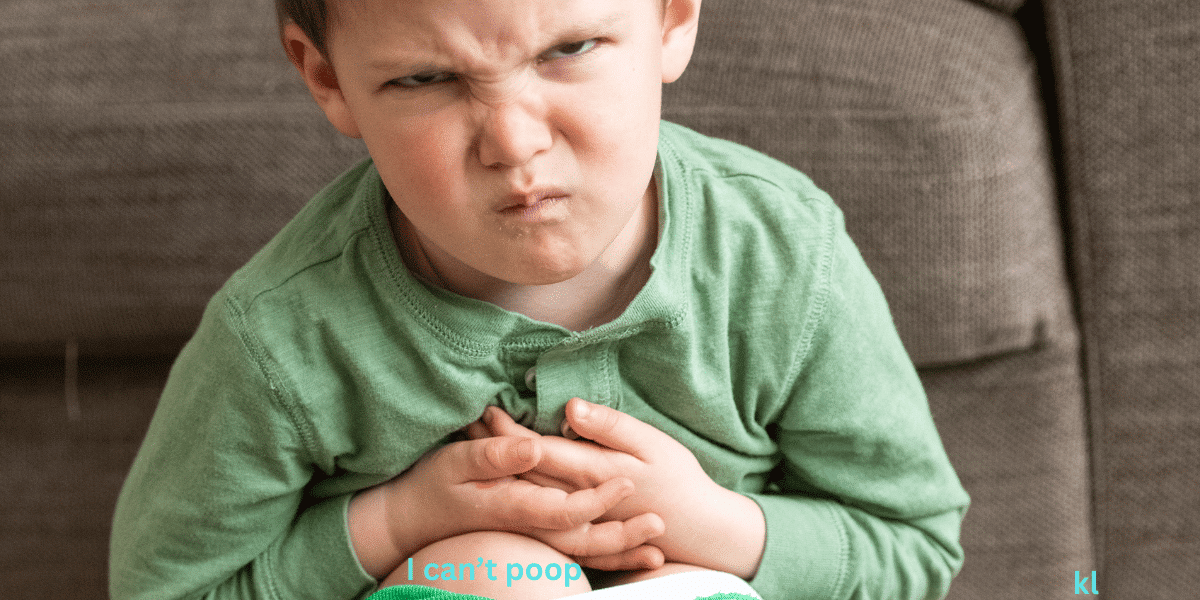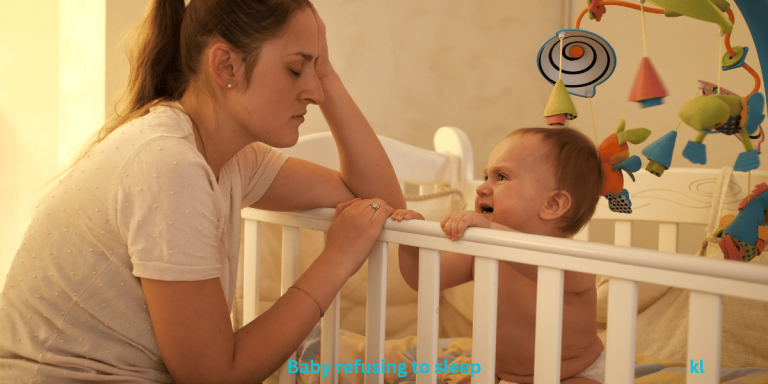Baby constipation can be stressful for parents! Watching your little one strain or go days without a poop is worrying—but in most cases, it’s normal.
This guide, Baby Constipation: Signs, Causes & Expert-Approved Solutions, will help you recognize constipation signs in babies, explore common causes, learn expert-approved baby constipation remedies that actually work, and when to see a doctor.
Understanding Baby Constipation
Turns out, baby poop frequency is one of those things that can vary wildly—and what’s “normal” depends on a few key factors, like whether your little one is breastfed or formula-fed. Let’s break it down so you can stop stressing over every diaper change.
What Is Considered Normal Baby Poop Frequency?
Newborns are poop machines—seriously, some go after every feeding! But as they grow, their digestion matures, and pooping patterns change.
- Breastfed babies often poop more frequently in the first few weeks (up to 8 times a day!) but may slow down to once every few days after 6 weeks. Since breast milk is so easily digested, some babies absorb almost everything, leading to fewer poops.
- Formula-fed babies tend to have more consistent bowel movements—usually once or twice a day—but are more prone to baby constipation signs like firmer stools and straining.
So, if your baby isn’t pooping daily, don’t panic! It’s all about stool consistency, not just frequency.
Formula-Fed vs. Breastfed Babies: How Stool Patterns Differ
One of the biggest digestion differences comes down to breast milk vs. formula:
- Breastfed baby constipation is rare because breast milk is a natural laxative. When it does happen, it’s usually due to something in mom’s diet.

- Constipation in formula-fed babies is more common since formula is thicker and takes longer to digest. Some formulas also contain iron, which can contribute to firmer stools.
If your baby is struggling with pooping problems, switching formulas (with your doctor’s advice) or adding a little extra hydration can help.
When Is a Baby’s Stool Actually Considered Constipated?
Not every skipped poop is constipation. But if you notice these baby stool problems, it might be time to intervene:
- Hard, dry, pellet-like stools instead of soft or pasty stools.
- Straining, crying, or turning red while trying to poop.
- Bloated belly or fussiness from built-up gas and discomfort.
- Skipping multiple days without pooping plus the above symptoms.
For newborns, constipation looks different from older babies. Newborns should poop frequently, while older babies can sometimes go a few days without an issue.
If your baby has occasional trouble but still passes soft stools, they’re probably fine. But if the discomfort lasts or stools are consistently hard, it might be time for some baby constipation relief strategies.
Common Causes of Baby Constipation
I remember frantically Googling, “Is my baby constipated or just weirdly skipping poops?” Turns out, there are several reasons why babies experience constipation, and understanding them makes it easier to fix the problem
There are several reasons why babies experience it, and understanding those reasons makes it way easier (and less stressful) to fix the problem.
1. Diet Changes: Transitioning from Breast Milk/Formula to Solids
The first time I introduced solids to my baby, I expected cute, messy mealtimes. What didn’t I expect? A major slowdown in bowel movements.
- Breast milk and formula are easy to digest, so when babies start solids, their tummies need time to adjust, especially during a dream feed when digestion can slow down.
- Some foods that cause constipation in babies, like bananas, rice cereal, and dairy, can make stools firmer.
- If your baby is starting solids and getting constipated, try adding fiber-rich foods like pears, prunes, or peas to keep things moving.
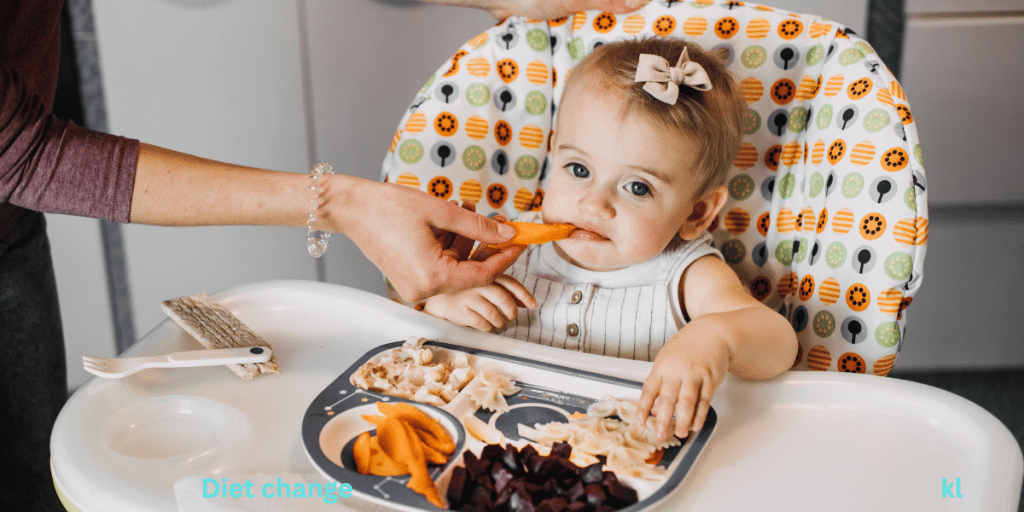
2. Dehydration: How Fluid Intake Affects Stool Consistency
Babies don’t need much water in the first few months, but once they start solids, hydration plays a huge role in preventing constipation.
- Dehydration and constipation go hand in hand because when there’s not enough fluid, the body pulls more water from the stool, making it hard and dry.
- Formula-fed babies can sometimes get constipated if their formula is mixed too thick, leading to firmer stools.
- If your baby is eating solids, offering sips of water with meals can help prevent stool from getting too dry.
If your baby’s poops are coming out like little pebbles, it’s a sign they might need more fluids.
3. Low-Fiber Foods: How Diet Impacts Bowel Movements.
Not all baby foods are created equal—some help with digestion, while others slow it down.
Foods that cause constipation in babies include rice cereal, bananas, white bread, and dairy.
- On the flip side, foods that help with baby constipation include pears, peaches, plums, and high-fiber veggies like spinach.
- If your baby is struggling, try swapping out binding foods for fiber-rich options (and don’t forget to add a little extra water).
- Making small changes in diet can make a big difference in your baby’s digestion
4. Medical Conditions: When Constipation Signals a Bigger Issue
While most baby constipation is diet-related, sometimes it’s a symptom of something more serious.
- If your baby has persistent constipation along with vomiting, weight loss, extreme discomfort, or ongoing congestion that disrupts sleep or feeding, it’s definitely time to check in with the pediatrician.
- Conditions like food allergies, hypothyroidism, or Hirschsprung’s disease can cause chronic digestive issues.
- If simple remedies aren’t helping, your doctor may recommend further evaluation.
Most of the time, baby constipation is harmless, but it’s always good to trust your instincts if something feels off.
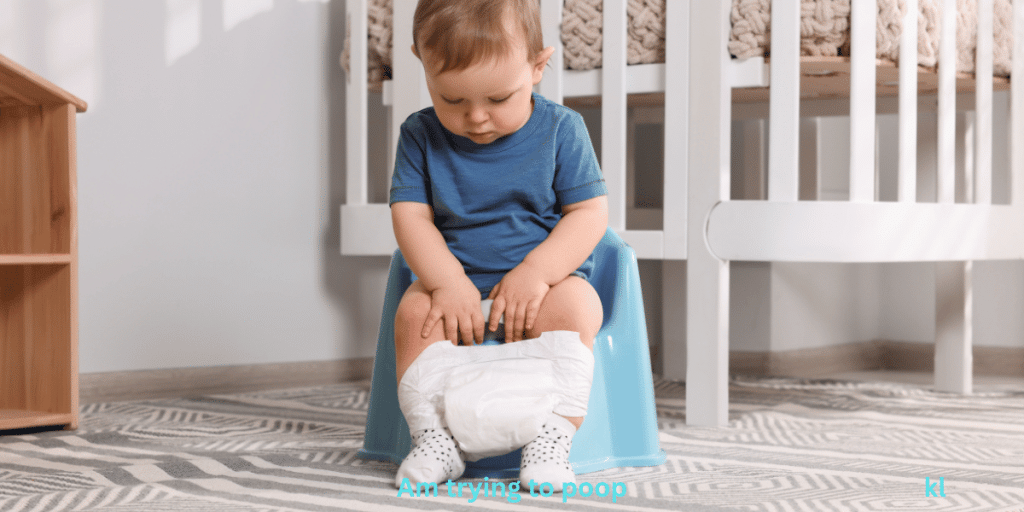
Expert-Approved Home Remedies for Baby Constipation
It’s enough to make any parent feel helpless. But before reaching for over-the-counter remedies, there are several natural ways to relieve baby constipation that are safe, gentle, and effective. I’ve tried most of these methods myself, and let me tell you, some work like magic!
1. Gentle Tummy Massage to Relieve Baby Constipation
One of the quickest and most effective infant constipation remedies is a simple tummy massage. I was skeptical at first, but after a few tries, I realized just how much it helps.
- How to do it: Lay your baby on their back and use two fingers to rub their belly in a gentle, clockwise motion. This helps stimulate the intestines and gets things moving.
- The “I Love U” massage technique is another great option: Start by tracing an “I” down the left side of their belly, then an upside-down “L” across the top, and finally a “U” down the right side. This follows the natural path of digestion.
- A warm bath before a massage can help relax their muscles and make it even more effective.
A good baby tummy massage for constipation takes just a few minutes and can work wonders!
2. The “Bicycle Legs” Method: Using Movement to Ease Constipation
Before my baby could crawl, I had no idea how much movement mattered for digestion. But a pediatrician once told me that babies who aren’t mobile rely on us to help them “exercise” their intestines.
- Lay your baby on their back and gently move their legs in a bicycling motion. This simulates movement and can help push gas and stool through the digestive tract.
- If your baby is extra fussy, holding their knees to their chest for a few seconds can also help.
- Doing this a couple of times a day can prevent constipation before it even starts.
Bicycle legs and movement techniques for better digestion are simple, but trust me—they work!

3. Hydration Tips: How Much Water Can Babies Drink?
Hydration plays a huge role in a baby’s digestion. If their poop is hard or dry, they might not be getting enough fluids—especially during sleep regression, when they might eat or drink less because their routine is off.
- Babies under 6 months usually get all the hydration they need from breast milk or formula, but in hot weather, a pediatrician might recommend a few extra sips of water.
- For babies 6–12 months, offering 2–4 ounces of water per day can help soften stools.
- If constipation is an issue, a little extra hydration can make a big difference.
When in doubt, check with your pediatrician about how much water your baby can drink safely.
4. Prune Juice for Baby Constipation: Safe or Not?
I’ll admit it—when I first heard about using prune juice for baby constipation, I thought it sounded way too intense. But after one terrible bout of constipation, I gave it a try, and WOW, it worked.
- How much? Babies 6–12 months can have 1–2 ounces of diluted prune juice (mixed with an equal amount of water).
- If your baby refuses prune juice, you can try mixing it into oatmeal or puree.
- If prunes don’t work, pears or apple juice are great alternatives.
Always start with a small amount and see how your baby reacts before increasing the dosage.
5. Baby Probiotics: Do They Help with Digestion?
Probiotics were something I never really thought about until my baby had constant tummy troubles. After talking to our pediatrician, I learned that probiotics can help regulate digestion by introducing healthy gut bacteria.
- Some studies suggest that baby probiotics may help soften stools and reduce constipation.
- Look for probiotics with Lactobacillus or Bifidobacterium—these are known to support digestion.
- You can get probiotics from foods like yogurt (for older babies) or in supplement form.
If your baby’s constipation keeps coming back, probiotics might be worth a try!
Foods That Help & Foods That Worsen Constipation
When your baby is constipated, diet can be a game-changer. Some foods can get things moving, while others can slow everything down—sometimes unexpectedly!
I learned this the hard way when I introduced bananas and rice cereal too quickly, only to realize they were making things worse.
If your little one is struggling with digestion, knowing which foods help and which ones hinder can make all the difference.
1. Foods That Help with Baby Constipation: High-Fiber Purees & Gut-Friendly Options
If your baby is having trouble pooping, you’ll want to boost their fiber intake with the right foods. But here’s the trick—not all fiber is the same!
Some fiber adds bulk but can be binding, while other types help soften stools and make them easier to pass.

Best high-fiber purees:
- Pears, peaches, and plums – These are my go-to constipation fixers! They contain sorbitol, a natural sugar alcohol that softens stools.
- Prunes – The OG of constipation relief. Even a few spoonfuls of prune puree can do wonders.
- Apples (with the skin, if possible) – Apple puree helps, but be careful with applesauce—it can have the opposite effect.
- Sweet potatoes – Loaded with fiber and easy to digest. I mix them with breast milk or formula for extra creaminess.
Probiotic-rich foods:
- Plain yogurt (for babies 6+ months) – Full of gut-friendly bacteria that help regulate digestion.
- Fermented foods like kefir (if your baby tolerates dairy) – A great alternative to yogurt with a natural probiotic punch.
Balancing fiber with enough fluids is key. Too much fiber without enough hydration can make constipation worse!
2. Foods That Cause Constipation in Babies: What to Watch Out For
Some foods are notorious for binding up the digestive system, and I was shocked to learn that even certain baby staples can cause trouble.
Common culprits:
- Bananas – Green or under-ripe bananas can be very binding. If your baby loves bananas, make sure they’re super ripe for easier digestion.
- Rice cereal – One of the first foods many parents introduce, but it’s low in fiber and can be constipation-inducing. Try switching to oatmeal instead.
- White bread, pasta, and refined grains – These have little fiber and can slow digestion.
- Too much dairy – Excess cheese, yogurt, or whole milk can lead to firmer stools. Once my baby started loving cheese, I had to cut back when I noticed more straining!
If your baby is constipated, reducing these foods for a few days while increasing high-fiber purees can help bring back balance.
When to Call the Pediatrician
But at what point should you stop trying home remedies and call the doctor? This was one of my biggest worries as a new parent.
I knew occasional constipation was normal, but when my baby went five days without a bowel movement, I started panicking.
Turns out, constipation is one of the top reasons, about 3–5%, why parents visit pediatric clinics. But when does it go from normal to something more serious? Let’s break it down.

How Long Is Too Long Without a Bowel Movement?
The truth is, there’s no single rule for how often a baby should poop. Some babies go multiple times a day, while others only go once every few days, especially breastfed babies, who absorb more nutrients. However, if your baby:
- Goes more than 5–7 days without pooping (especially if uncomfortable).
- They have very hard, pellet-like stools when they do go.
- Strains excessively, but nothing comes out.
… It may be time to check in with your pediatrician. Chronic constipation in babies can sometimes point to an underlying digestive or medical issue.
Signs of Severe Constipation That Need Medical Attention
Mild constipation is common, but certain symptoms mean it’s time to call the doctor ASAP. I learned this when my baby started refusing to eat after days of struggling to poop. If you notice any of these, don’t wait it out:
- Severe baby stool problems – Extremely hard, dry stools that cause pain.
- Blood in stool – Small streaks can happen from straining, but larger amounts or consistent .bleeding could indicate an issue like an anal fissure or a food allergy.
- Extreme straining – Grunting is normal, but if your baby cries in pain while trying to poop, something isn’t right.
- Lack of appetite – If the baby refuses to eat or seems bloated and miserable, their digestive system may be backed up.
- Vomiting along with constipation – This could signal a more serious blockage that requires immediate medical care.
If you’re unsure, trust your instincts. A quick call to the pediatrician can save you a lot of stress.
Real Moms Share Their Baby Constipation Fixes
So, I asked other parents: What actually worked for your baby’s constipation? Here’s what real moms had to say.
Tried-and-Tested Remedies from Experienced Moms
💬 “Bicycle legs saved us!” – Ava, mom of 2
“Whenever my baby seemed backed up, I lay her on her back and gently pedaled her legs like a little bike. It looked silly, but I swear it worked every time!”

💬 “Warm baths + belly rubs = magic” – Emma, first-time mom
“I didn’t believe it at first, but a warm bath really does help. After bath time, I’d give my baby a belly massage with a little coconut oil, and the next morning—success!”
💬 “Oatmeal over rice cereal!” – Samantha, mom of twins
“I wish someone had told me sooner that rice cereal can cause constipation! Switching to oatmeal made such a difference in my babies’ digestion.”
💬 “Prune puree works—but in moderation!” – Sophia, mom of 1
“I once gave my baby too much prune puree in one day… let’s just say I was washing A LOT of clothes after that. A little goes a long way!”
Understanding what causes baby constipation is the first step in preventing it. Whether it’s a diet change, dehydration, or digestion differences between breast and formula feeding, small adjustments can help get things moving again.
And if you’re ever unsure? Trust your gut—and don’t be afraid to call the pediatrician if things don’t improve.
At the end of the day, every baby is different. What works for one might not work for another, and sometimes it takes a bit of trial and error to find the right fix.
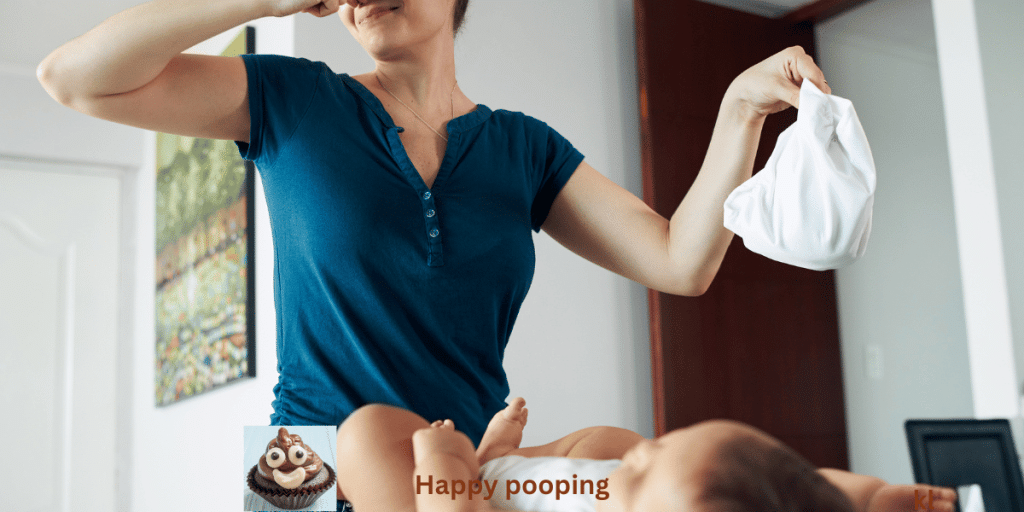
The best advice? Stay patient, trust your instincts, and always keep extra wipes handy!

